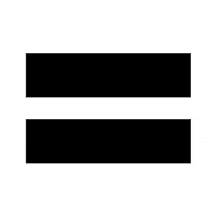GCSE
GCSEs are the standard curricula for 14-16 year olds in the UK. The GCSE Maths qualification is only available in the UK and certain schools in a small number of other countries such as Canada, Australia and India. The iGCSE is by nature 'international' and can be taken in over 150 countries worldwide. O Levels are also still offered in around 50 countries.
**Exam Boards: ** The following exam boards are available for GCSE maths:
-
Edexcel (GCSE in UK and iGCSE internationally)
-
AQA (GCSE in UK)
-
OCR (GCSE in UK)
-
Cambridge (iGCSE and O Level internationally)
-
WJEC (GCSE in Wales)
-
CCEA (GCSE in Northern Ireland)
-
SQA (GCSE in Scotland)
A student will study the exam board that their school has chosen. In UK, Edexcel is the most popular exam board taken. The second most common is AQA. AQA questions are considered the easiest since there is less problem solving involved than in Edexcel. The questions are in a different structure as well, with several parts to each question giving candidates more hints as to the technique needed to find a final answer, so more marks are awarded. Each paper starts out with multiple choice style questions for the first few questions. Edexcel has harder questions but a more lenient mark scheme than AQA. Since exam boards can't make their papers of an identical difficulty, they take it into account when they set the grade boundaries. See grade boundaries for the breakdown for each exam board. They're also all regulated to make sure it's not easier to get a certain grade with one board than another. OCR is harder than both AQA and Edexcel, but Cambridge is the hardest of all. Cambridge is an international exam board that is offered all over the world. Wales, Northern Ireland and Scotland each have the own exam board. WJEC is the only exam board allowed in Wales and has the least amount of resources to revise with, so students find it difficult. CCEA is the exam board taken in Northern Ireland and SQA is the exam board taken in Scotland.
What are the differences between Edexcel GCSE (code 1MA1) and iGCSE (code 4MA1) Maths?
Differences:
-
Content. There are topics/skills that are in GCSE, but not iGCSE and there are topics that are in iGCSE, but not GCSE.
-
Difficulty. The iGCSE papers are more formulaic and predictable and require less problem solving skills. This is mainly due to the fact that this exam also caters for students internationally where English is their second language.
-
Formulae in the exam. For GCSE,a student is expected to learn most of the necessary formulae, but for iGCSE, a formula sheet is given at the beginning of each paper.
-
Paper format. The GCSE has 3 papers (one non-calculator and 2 calculator) whereas the iGCSE has 2 papers (both calculator)
-
Exam dates. The GCSE is considered more rigorous because the rules are more stringent, such as the fact that students can only sit for the GCSE exams in May/June and resits can be taken in November each year. For Maths, iGCSE exams are available in November and January and also in May/June each year. Therefore, the IGCSE is considered “easier” due to its flexible nature.
-
Countries offered. The GCSE is only offered in the UK, whereas the iGCSE is offered internationally. State schools are no longer offering the iGCSE, only private schools.
-
iGCSE also offers another Specification B qualification (code 4MB1) which is available at Higher Tier only and includes some different topics such as matrices. This specification is quite a bit harder that 4MA1. The difference between GCSEs and iGCSEs are considered so minor, that either option is not perceived as ‘better’ or ‘worse’ than the other one. The GCSE and the iGCSE are therefore accepted as ‘equivalent’ qualifications by the vast majority of universities, sixth form colleges and other independent schools around the world. This is a bit of a scandal though as it is easier to get top grades in iGCSE math than in GCSE maths.
Similarities:
-
Grading. Both GCSE and iGCSE are graded from 1 to 9 – with 9 being the top grade and both offering both foundation and higher tiers
-
Coursework. Both GCSE and IGCSE are entirely exam-based; there is no coursework element in either qualification.
Note: There is also a Cambridge iGCSE which is offered all over the world and considered harder than both the edexcel GCSE and iGCSE. There are 4 variants (codes 0580, 0607, 0444 and 0980)
Additonal/Further Maths Courses:
There are also further and additional maths GCSE options to cater for pupils who would like to study beyond the Higher Tier GCSE syllabus in Mathematics and are capable of working above this level. Additional maths is considered harder than further maths. Further maths is a GCSE equivalent, rather than a GCSE. Additional maths is better than a GCSE, more like half an AS level. Additional maths is a level 3 qualification and attracts UCAS points, while Further Maths is level 2 (GCSE equivalent). Further/additonal GCSE and Further/additional iGCSE syllabui are purely designed to broaden the mathematical experience of high attaining pupils and prepares them for the first half of AS Mathematics. The following exam boards are available for further maths:
-
Edexcel iGCSE (Further Maths. This is recognised internationally)
-
AQA (Further Maths only available in the UK)
-
OCR (Additional Maths only available in the UK)
-
Cambridge iGCSE (Additional maths. This is recognised internationally)
The OCR additional GCSE maths course (FSMQ) is a level 3 course, which really helps to bridge the gap between GCSE and A level and really builds on the key skills one needs for A level and will give one a great head start. AQA Further GCSE Maths is a level 2 course and will help students stretch their knowledge beyond GCSE. Both are similar in content and both are good preparation for Maths A-level, however, AQA doesn't go as far into the A level content as OCR does. AQA is 2 exams compared to OCR's one exam. iGCSE Edexcel Further Maths is harder than AQA Further Maths and covers more content than AQA, but easier than OCR. Cambridge iGCSE additional Maths is hardest of all.
GCSE resources are available below for the following exam boards - Edexcel, AQA, OCR, WJEC & Cambridge.
GCSE maths past papers, iGCSE maths past papers, O level maths past papers, practice papers, cheat sheets, revision notes and textbooks for all exam boards.


